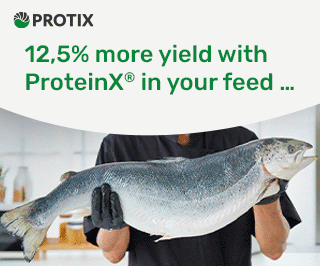On Wednesday, the Canadian Aquaculture Industry Alliance (CAIA) President & CEO, Timothy Kennedy, released the following statement in response to the Government of Canada’s announcement on the extension of BC salmon aquaculture licenses.
Federal Fisheries and Oceans Minister Diane Lebouthillier committed repeatedly to deliver a responsible plan that was, “realistic, reasonable and achievable.”
Today, the Prime Minister and the Minister’s Cabinet colleagues have thrown the Minister’s commitments under the Liberal political bus and announced an objective by 2029 for BC salmon farming that is the opposite: irresponsible, unrealistic, unreasonable and unachievable.
Instead of embracing a balanced pathway towards economic opportunity, increasing healthy and affordable home-grown food, recognizing an exceptional level of Indigenous collaboration and economic reconciliation and incrementally greater environmental protection, it has embraced a position that reflects unaccountable and extreme activist voices.
The objective is irresponsible because it threatens 5,000 highly paid and skilled jobs in coastal British Columbia (the youngest agri-food workforce in Canada and 500 of these jobs held by Indigenous people) during a time of economic stagnation. These jobs were considered “essential” to Canada only a few years ago. It also threatens the very investment and operations infrastructure built up over 45 years of production that will provide the foundation on which to successfully build and attract new aquaculture technologies.
It is also irresponsible because it threatens the approximately 400 million salmon meals produced by the BC sector (in addition to the previously vanished 400 million meals since 2016) and would add the equivalent of 150,000 cars to Canadian roads through increased carbon emissions due to air freight for foreign-sourced salmon.
The objective is unrealistic because transferring the sector to closed containment by 2029 is logistically impossible.
The objective is unreasonable because there is no scientific basis to this decision. The science at most calls for incremental protections for wild salmon in certain areas. The industry is committed to achieving incremental protections through new technologies.
The objective is unachievable because it threatens to destroy economic value, an enhanced innovation pathway, jobs and high-quality Canadian food production.
We thank all our employees, BC First Nations partners and the entire Canadian aquaculture, farming and food production sectors in Canada for their support during the very difficult last five years since the original 2019 Liberal platform commitment to transition the BC salmon farming sector. Thousands of hours have been spent by employees and partners on developing reasonable, realistic and achievable plans to support the federal government’s objectives. None of these are reflected in the announcement before us today.
We will continue to work with our partners and for the communities in which we work for a realistic, reasonable and achievable pathway forward as originally promised by Minister Lebouthillier.



